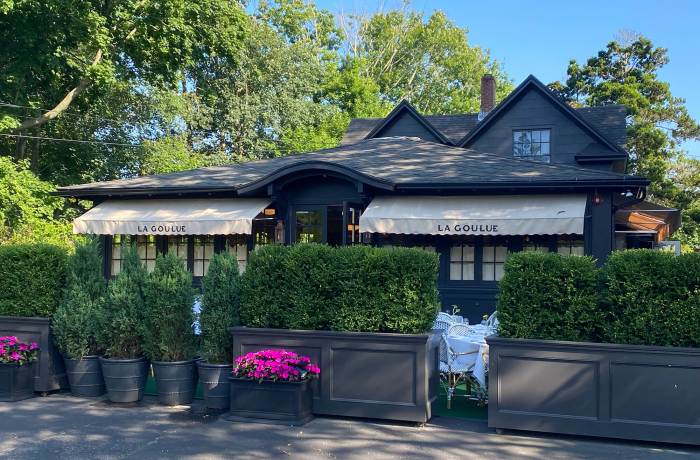Veterans Day and the Great War
It was once called the “Great War” until an even bigger war was fought and since they could not call that, “The Greater War” they settled on WWI and WWII. I recalled this at the memorial ceremony we had on Veterans Day, formerly Armistice Day, which was, as always, moving.
Listening to Taps, it was the first Armistice Day that fluttered in my thoughts. Strange, but I remember a lonely road — I’m not sure where, but it was a cold and wintry day and I drove past a bleak, uneven landscape intermittently dotted with naked, leafless trees that under a plaintive, gray sky made the earth look ashen and emaciated. The scene reminded me of death; like a black and white snapshot of the “Great War,” a conflict known more for stalemate and mass slaughter in rural landscapes than bombed out cities.
Nothing explains the 20th century like the “Great War.” At the turn of the century, Europe was still mostly ruled by a family of monarchs. But the roar of war swept it away and with it the 750-year-old Austrian-Hungarian Empire. When the killing fields were still ripe with the dead it gave us the Russian Revolution, a shadow that would haunt Eastern and Central Europe for the next 70 years. The League of Nations was born and died, and the Balfour Declaration carved Palestine out of the Middle East and established the Jewish homeland. Over the next 20 years, the Jewish population there rose ten-fold, ultimately transforming the region from a stale piece of dust into a viable but seething cauldron of ancient hatreds.
No one really foresaw the “Great War” though preparations were made to fight it. Except for a few flare-ups, Europe had been at peace for 100 years. Life sauntered on whistling with an air of optimism. H.N. Brailsford, a masterful writer on international relations, published a book in the late spring of 1914 that concluded with this ringing prognostication: “There will be no more wars among the six Great Powers.”
Eight weeks later the guns of August were unloosed and the world went on a killing spree. Why? Historians struggle to explain it. The Second World War killed four times as many but was sometimes called the “Good War” because the evil it fought against was so distinct: Hitler, the Nazi Blitzkrieg, the U.S. Fleet smoldering at Pearl Harbor, the Holocaust. But WWI was different; through a complicated network of tangled alliances the world was, almost haphazardly, sucked into a vortex of self-destruction.
If there was a single cause, it was to restore the balance of power that shifted when Germany emerged as a united power in 1870. A latecomer to European politics, it was nonetheless the 800-pound gorilla in the room. German militancy was palpable causing Churchill to remark that the “Huns were either at your feet or at your throat.” Perhaps, nevertheless a powerful Germany was the one morsel Europe could not comfortably digest.
It was the Balkans, bubbling over with nationalism, that was the catalyst for the conflagration. A state visit by the Archduke Ferdinand and his wife to Sarajevo, capital of Bosnia-Herzegovina, which was once part of the Ottoman Empire, it had been formally annexed by Austria-Hungary in 1908, a power grab that rankled neighboring Serbia. Extremists thirsted for vengeance and got it when 19-year-old Gavrilo Princip fired several shots point blank while the royal couple rode in the motorcade. The Archduke and his wife died within minutes and all hell broke loose.
Princip was a scrawny little runt but he ignited a great big war. With the Serbian government disclaiming responsibility it did not seem that the murders would unravel the peace. But Austria-Hungary wanted their pound of flesh. When Russia and Germany intervened on opposite sides, Europe crumbled into chaos. Like a nuclear reaction, once in motion it could not be stopped.
Diplomacy failed to suppress billowing hostilities. With everyone seemingly allied to everyone else, countries started piling on as if war were rugby. Soon daylight melted into twilight and twilight into darkness. One can still hear the mourning, plaintive words of British Foreign Secretary Sir Edward Grey: “The lamps are going out all over Europe; we shall not see them lit again in our lifetime.”
Germany was emboldened. For 40 years Count Alfred von Schlieffen perfected his plan to solve Germany’s dilemma of fighting a two-front war by conquering France quickly. Obsessed, he continued to refine it until the day he died, a year before the war. The plan called for a rapid mobilization followed by an overwhelming semi-circular sweep on the right wing southwest through neutral Belgium into France and victory.
It was just as well that von Schlieffen did not live to see his plan implemented as the German Army was stopped cold at the First Battle of the Marne and the Count became like the protagonist in Benjamin Disraeli’s only novel “who had but one idea in his whole life — and it was wrong.”
Now both sides dug in and the slaughter began in earnest. That generals are always fighting the last war was never more apropos than WWI when 19th-century tactics had a tragic rendezvous with 20th-century technology. Rifled breech loading field artillery with its high velocity ammunition industrialized death on a massive scale. Machine guns firing 600 rounds a minute made mincemeat of Napoleonic tactics and a mockery of the gallant charge.
Barbed wire, submarine warfare, dogfights in the air and a greenish-yellow cloud that signaled poison gas barbarized the battlefield in ways that were previously unimaginable. Casualties were staggering, mounting into the millions. Never was war so costly and so futile. Soldiers lived in trenches that bred filth, misery, disease and frostbite. Swollen, blackened corpses twisted in the most grotesque postures littered the battlefields. Nor were all the victims human; some 500,000 horses were killed. The horrifying shrieks of the poor dumb brutes forever rang in the ears of the survivors.
The philosopher Bertrand Russell called the war ‘organized murder’ and Theodore Roosevelt, long enthralled by the trophies of the battlefield, was shattered by the death of his youngest son, Quentin. Indeed the depressing nature of the war challenged the belief of the essential rationality and goodness of man. Authors and artists alike, children of the Enlightment, reflected in their words and art the spiritual emptiness and cosmic absurdity of the world.
By 1917 the war had swung in Germany’s favor. President Wilson was re-elected for keeping America out of the war but was soon drawn into the terrible “maelstrom.” The military was completely unprepared, but America went “Over There, Over There” anyway. A million and a half pink-faced Doughboys would go to the Western Front; when it was over 17 months later, 116,000 never returned. Small potatoes as far as the rest of the world was concerned, having lost 14 million in four years of fighting.
Germany could not fight the whole world so peace terms were presented and haggled over. As November approached it was agreed that the guns would go silent on the 11th hour of the 11th day of the 11th month of 1918. By some crazy reflex both sides fought to the last. Captain Harry Truman remembered firing his battery until 10:45.
Finally, the appointed hour arrived. “What’s an armistice?” one soldier asked. “Time to bury the dead,” another replied. In retrospect the armistice was more a call to arms. Shocked at the harsh peace terms imposed on a defeated Germany, France’s Marshall Foch presciently exclaimed, “This is no armistice, it’s a 20-year cease fire!” Meanwhile, President Wilson saw his opportunity to fulfill his destiny and make the “World safe for democracy” but never on a world stage were the frailties of human ingenuity so tragically mocked by subsequent events. The New World Order became a breeding factory of Nazism, Fascism, Communism and militarism. While Europe reverted to barbarism, the United States nestled comfortably in isolationism until economic collapse and relentless aggression threatened the very survival of Western Civilization. But that, as they say, is another story.
































